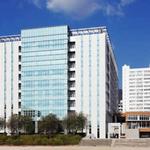Hiroshima Institute of Technology is a private university located in Hiroshima City, Hiroshima Prefecture, Japan. It was founded in 1963. The university is known for its excellent education and research results in the fields of engineering and information technology, and is committed to cultivating talents with high professional qualities and practical abilities. The following is a detailed introduction to Hiroshima Institute of Technology, including its history, subject settings, educational characteristics, campus facilities and other information.
Basic Information
Name: Hiroshima Institute of Technology (Japanese: Hiroshima Institute of Technology, ひろしまこうぎょうだいがく)
English Name: Hiroshima Institute of Technology
Abbreviation: Hiroshima Institute of Technology, HIT
Address: 2-17-1, Kusatsu Shinmachi, Minami-ku, Hiroshima City, Hiroshima Prefecture
Establishment Date: 1963
Type: Private University
Historical Evolution
1963: Hiroshima Institute of Technology was established, and the initial focus was mainly on engineering education.
1970s to 1980s: Gradually expand the scope of education, add new disciplines and majors, and enhance scientific research capabilities.
1990s to present: Continuously optimize the education system, improve teaching quality, and become a well-known private university in Hiroshima Prefecture.
Discipline settings
Hiroshima Institute of Technology has multiple departments and disciplines, covering engineering, information science, environmental science and other fields. The specific discipline settings are as follows:
Department of Engineering
Electronic Information Engineering: Cultivate professionals with electronic information engineering knowledge and practical ability.
Electrical Digital System Engineering: Cultivate professionals with electrical digital system engineering knowledge and practical ability.
Mechanical System Engineering: Cultivate professionals with mechanical system engineering knowledge and practical ability.
Urban Construction Engineering: Cultivate professionals with urban construction engineering knowledge and practical ability.
Construction Engineering: Cultivate professionals with construction engineering knowledge and practical ability.
Department of Information Engineering
Information Engineering: Cultivate professionals with information engineering knowledge and practical ability.
Intelligent Information System Discipline: Cultivate professionals with intelligent information system knowledge and practical ability.
Department of Environmental Science
Environmental Design Discipline: Cultivate professionals with environmental design knowledge and practical skills.
Regional Environment Discipline: Cultivate professionals with regional environment knowledge and practical skills.
Graduate School Settings
Engineering Graduate School
Electronic Engineering Major: Cultivate research talents with advanced electronic engineering knowledge.
Mechanical System Engineering Major: Cultivate research talents with advanced mechanical system engineering knowledge.
Construction Engineering Major: Cultivate research talents with advanced construction engineering knowledge.
Information System Engineering Major: Cultivate research talents with advanced information system engineering knowledge.
Intelligent Skills Science Major: Cultivate research talents with advanced intelligent skills science knowledge.
Environmental Science Graduate School
Regional Environment Science Major: Cultivate research talents with advanced regional environment science knowledge.
Educational Features
Practical Education: Emphasize the combination of theory and practice, provide rich internships and practical activities, and help students accumulate practical work experience.
International Education: Actively promote international education, establish cooperative relations with universities in many countries, and provide overseas exchange programs.
Professional Training: Focus on students' professional skills training, and cultivate professionals with a solid theoretical foundation and practical ability.
Career support: There is a dedicated career guidance center that provides services such as career planning, employment consultation and internship recommendations.
Campus facilities
Library: It has rich book resources and a modern reading environment.
Laboratory: Equipped with advanced experimental equipment to support scientific research and practical teaching.
Sports facilities: Including gymnasiums, sports fields, etc., to promote students' physical and mental health.
Student dormitories: Provide comfortable accommodation environment to facilitate students' life and study.
Research Center
Electronic Engineering Research Center: Research various problems in the field of electronic engineering and provide support for the development of the electronic industry.
Mechanical Engineering Research Center: Research various problems in the field of mechanical engineering and provide support for the development of the mechanical industry.
Information Engineering Research Center: Research various problems in the field of information engineering and provide support for the development of information technology.
Environmental Science Research Center: Research various problems in the field of environmental science and provide support for environmental protection and sustainable development.
Student activities
Club activities: There are many student clubs covering academic, cultural, sports and other fields.
Volunteer activities: Encourage students to participate in community services and social welfare activities to cultivate a sense of social responsibility.
Admission requirements
Entrance examination: Usually includes written examination and interview. Please refer to the school's official website for specific requirements and procedures.
International students: International students are accepted, subject to language proficiency and other relevant requirements.
Contact information
Tel: +81-82-921-3128
Fax: +81-82-921-3129
Email: info@hit.ac.jp
School motto
Spirit of founding: Practical innovation
Educational philosophy: To cultivate talents with high professionalism and social responsibility, and to contribute to the development and progress of society.
Featured courses
Electronic Information Engineering: The "Electronic Information Engineering" is specially set up to cultivate students' electronic information engineering knowledge and practical ability.
Electrical Digital System Engineering: Provide "Electrical Digital System Engineering" to help students master electrical digital system engineering knowledge and practical ability.
Mechanical System Engineering: Provide "Mechanical System Engineering" to help students master mechanical system engineering knowledge and practical ability.
Urban Construction Engineering: Provide "Urban Construction Engineering" to help students master urban construction engineering knowledge and practical ability.
Construction Engineering: Provide "Construction Engineering" to help students master construction engineering knowledge and practical ability.
Information Engineering: Provides "Information Engineering" to help students master information engineering knowledge and practical skills.
Intelligent Information System: Provides "Intelligent Information System" to help students master intelligent information system knowledge and practical skills.
Environmental Design: Provides "Environmental Design" to help students master environmental design knowledge and practical skills.
Regional Environment: Provides "Regional Environment" to help students master regional environment knowledge and practical skills.
Employment Situation
Employment Rate: Hiroshima Institute of Technology graduates have a high employment rate, and many graduates have found satisfactory jobs in manufacturing, information technology, architectural design, environmental engineering and other fields.
Notes
Reputation: Hiroshima Institute of Technology enjoys a good reputation in Hiroshima Prefecture and throughout Japan, especially in the fields of engineering, information science and environmental science.
Further studies: Graduates can choose to continue their studies in graduate school or other higher education institutions, or they can directly enter the workplace.
The above is a basic introduction to Hiroshima Institute of Technology. If you have more specific questions or need detailed information, it is recommended to visit the school's official website or contact the relevant department of the school directly.
-
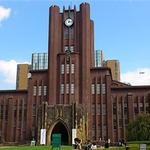
The University of Tokyo
-
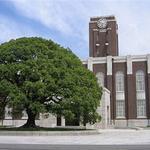
Kyoto University
-
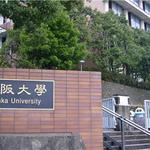
Osaka University
-
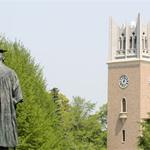
Waseda University
-
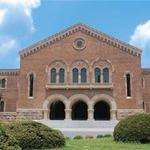
Hitotsubashi University
-
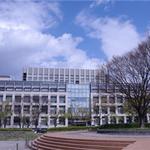
Nagoya University
-
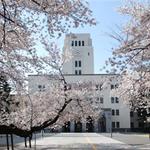
Tokyo Institute of Technology
-
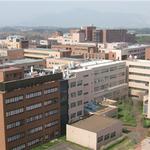
University of Tsukuba
-
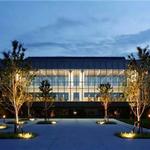
Keio University
-
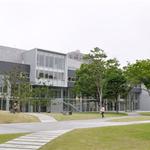
Tohoku University
-

Mesoamerican University
-

Istmo University
-

Mariano Galvez University of Guatemala
-

Regional University of Guatemala
-

Galileo University
-

Francisco Marroquín University
-

Rafael Landívar University
-

University of the Valley of Guatemala
-

University of San Carlos of Guatemala
-

Technological Institute of Tlaxcala Plateau
-

Golfo University
-

Technological University of South Sonora
-

Technological University of Huejotzingo
-

Tizimín Institute of Technology
-

Chilpancingo Institute of Technology

